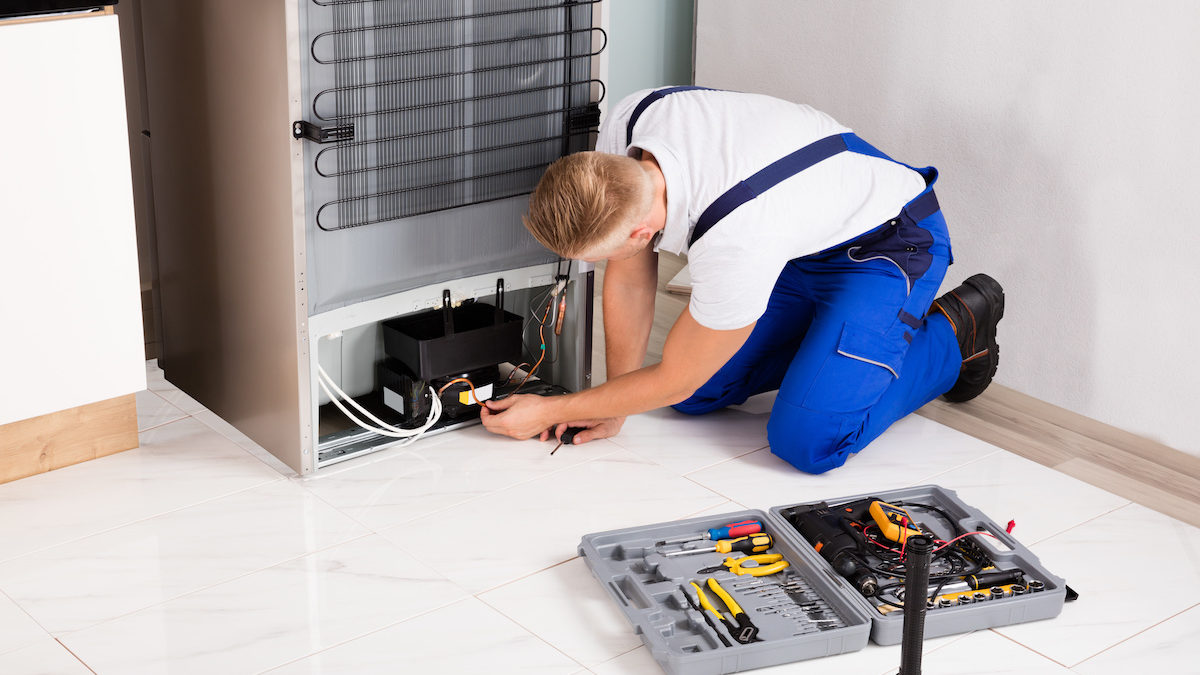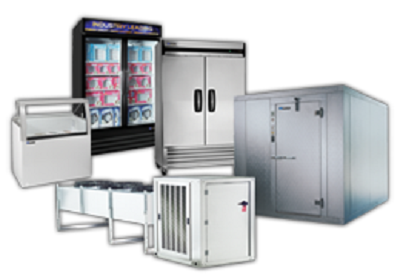Appliance Warm Inside? Refrigerator repair experts Dependable Refrigeration & Appliance Repair Offer Quick Troubleshooting Tips
Appliance Warm Inside? Refrigerator repair experts Dependable Refrigeration & Appliance Repair Offer Quick Troubleshooting Tips
Blog Article
Important Tips for Effective Ref Repair Service to Extend Home Appliance Life Expectancy
When it comes to your fridge, appropriate repair and upkeep are essential for longevity. Understanding usual issues and knowing when to act can make all the distinction.
Understanding Usual Fridge Troubles
Refrigerators are vital in keeping your food fresh, but they can encounter a variety of typical issues that interrupt their performance. One constant problem is inadequate air conditioning. If you see food spoiling quicker than usual, examine the thermostat setups or consider if the door seals are damaged. An additional common problem is too much noise, which might suggest a malfunctioning compressor or a stopping working fan. You might also experience water pooling inside or below the refrigerator; this commonly results from a clogged up defrost drain or a faulty water line. Additionally, if your refrigerator's light isn't functioning, it might be an easy bulb problem or a problem with the door button. Finally, ice accumulation in the freezer can prevent air flow and cooling efficiency. Identifying these problems early can conserve you money and time out of commission, guaranteeing your fridge runs efficiently and efficiently.
Normal Maintenance Practices
To keep your home appliances running smoothly, you require to stay on top of routine maintenance practices. Tidy the condenser coils, examine the door seals, and check the temperature settings to ensure peak performance. These straightforward tasks can conserve you money and time on fixings down the line.
Clean Condenser Coils Routinely
Cleansing your condenser coils consistently can significantly enhance your home appliance's efficiency. Dirt and dust construct up on these coils over time, causing your home appliance to work harder and consume more power. To keep them clean, unplug your appliance and carefully eliminate any type of protective covers.
Examine Door Seals
Three straightforward steps can help you assure your appliance's door seals are in good condition. 2nd, tidy the seals using cozy, soapy water to get rid of any kind of particles or gunk. By following these actions, you'll preserve your device's effectiveness and durability, saving you cash on energy expenses and repair work in the lengthy run.
Screen Temperature Setups
Consistently checking your appliance's temperature level setups is necessary for finest efficiency and efficiency. Whether you're handling a fridge, freezer, or stove, watching on these setups can stop several concerns. For refrigerators, go for temperatures between 35 ° F and 38 ° F; for freezers, stick around 0 ° F. If the temperatures are as well high or low, your appliance may work harder, losing power and shortening its lifespan. Utilize a thermostat to examine these setups frequently, particularly after significant adjustments, like relocating your home appliance or changing the thermostat. If you observe changes, readjust the setups appropriately and speak with the customer manual for assistance. By remaining aggressive regarding temperature level surveillance, you'll guarantee your appliances run smoothly and last much longer.
Troubleshooting Air Conditioning Concerns
When your refrigerator isn't cooling appropriately, it can result in spoiled food and squandered cash, so addressing the issue without delay is vital. Beginning by examining the temperature level settings to validate they go to the suggested levels, normally around 37 ° F for the refrigerator and 0 ° F for the fridge freezer. If the settings are right, evaluate the door seals for any gaps or damage; a faulty seal can enable warm air to enter.
Inspect the condenser coils, generally located at the back or base of the system. Tidy them with a vacuum or brush to optimize efficiency. If issues linger, it might be time to call an expert.
Dealing With Water Leak and Ice Accumulation
If you're managing water leakage or ice accumulation in your home appliance, it's vital to identify the resource of the problem. By identifying where the water is coming from, you can protect against additional concerns and stay clear of costly repair services. Allow's check out some effective strategies to deal with these typical problems.
Recognize Leakage Sources
Just how can you effectively identify the sources of water leakage and ice accumulation in your appliances? Start by checking the seals and gaskets on your fridge and fridge freezer doors. A used or broken seal can enable warm air to go into, triggering condensation and ice. Next, check the drainpipe pan and water drainage system for blockages or obstructions; a backed-up drainpipe can cause water merging. Seek any loose connections in the supply of water line, which can develop leaks. Additionally, take a look at the defrost drain for ice accumulation, which can interrupt proper drain. By systematically checking these locations, you'll identify the resource of the problem, enabling you to take the needed steps to fix it and extend your home appliance's life-span.
Stop Ice Development
To stop ice development in your home appliances, beginning by confirming the temperature level setups are suitable. If your fridge or freezer is too chilly, it can result in too much ice accumulation. Check the door seals frequently; damaged seals can let cozy air in, creating condensation and ice development.
Keep the device well-ventilated and avoid congestion, as this can block air movement - Dependable Refrigeration & Appliance Repair Service LG Appliance Repair. Consistently thaw your fridge freezer if it does not have an automated defrost feature.
If you notice water leak, identify and deal with any type of obstructed drainage openings, as click over here they can add to ice build-up. Finally, tidy the coils and verify they're working properly to keep peak performance. Taking these steps will aid expand your home appliance's lifespan and effectiveness.
Addressing Noisy Fridge Appears
While it may seem alarming, a loud fridge usually indicates small concerns as opposed to major breakdowns. Determine the source of the noise. Typical offenders include the compressor, fans, and water lines. If you hear a buzzing noise, it could be the compressor striving; this can simply be a typical operation noise.
Following, look for loose things inside. Occasionally, containers or racks can rattle, developing undesirable noise. Tighten up or reposition them to remove the audios.
If you observe a clicking sound, it may be the defrost timer. This is normally safe but could indicate it needs examination.
Lastly, verify your refrigerator is level. An out of balance device can create resonances and sound. Utilize a degree to examine, and adjust the feet if needed. Dealing with these issues immediately can assist keep your refrigerator's performance and extend its life-span.
When to Change Components vs. Complete Substitute

Consider the cost of repair work versus the device's value. Additionally, if you notice recurring troubles that keep reoccuring, it's a sign that your appliance has actually gotten to the end of its life.
Understanding When to Call an Expert
How can you tell when it's time to call in a specialist for home appliance fixing? If your home appliance stops functioning altogether or often trips circuit breakers, it's an additional red flag.
You ought to likewise consider your very own convenience level with repair work. If you're unclear regarding diagnosing the issue or lack the right tools, it's best to get to out for assistance. Keep in mind, attempting complicated repair work can bring about even more damage and even safety and security hazards.

Often Asked Inquiries
How Frequently Should I Clean the Refrigerator Coils?
You must clean your refrigerator coils every 6 months. This aids maintain effectiveness and protects against getting too hot. If you notice too much dust or animal hair, tidy them extra regularly to ensure your fridge runs smoothly.

Can I Make Use Of Vinegar for Cleansing My Refrigerator?
Yes, you can utilize vinegar to cleanse your fridge! It's an outstanding natural cleaner that eliminates odors and spots. Washing Machine Repair Dependable Refrigeration & Appliance Repair Service. Simply blend it with water, use it to surface areas, and wipe down for a fresh, clean refrigerator
What Temperature Should My Fridge Be Establish To?
You need to set your refrigerator to 37 ° F(3 ° C) for excellent food conservation. This temperature maintains your food fresh while protecting against perishing, ensuring your groceries last useful site longer and reducing waste. It's a simple change you can make!
Does a Fridge Required to Be Leveled?
Yes, your fridge needs to be leveled. If it's irregular, it can influence useful reference cooling down performance and cause excess sound. Check the leveling legs and adjust them to guarantee correct balance for perfect performance.
Just How Can I Lower Refrigerator Energy Usage?
To decrease your fridge's energy usage, keep it tidy and well-ventilated, check door seals for leakages, established the temperature between 35-38 ° F, and prevent overwhelming it. These actions can considerably lower your energy bills.
Report this page